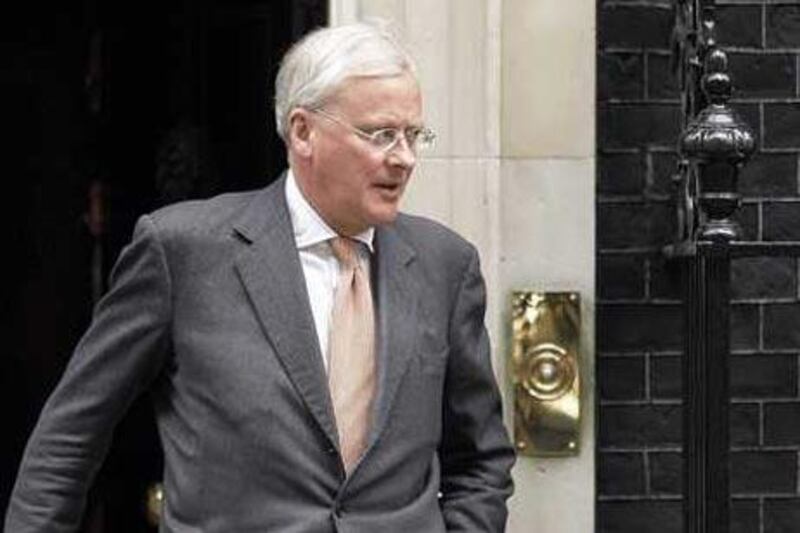John Varley, the head of Barclays, has attacked the UK government's decision to slap a one-off tax on bank bonuses, warning it could damage the City of London. Last month, Alistair Darling, the chancellor of the exchequer, announced a 50 per cent tax rate on banker bonuses above £25,000 (Dh148,147) to try to cut excessive payouts after major lenders were bailed out with taxpayer money during the financial crisis.
But the decision has caused uproar in the financial sector and Mr Varley said the tax would prevent UK banks from competing on a level playing field. "I think that London could well be damaged by this and it is very important to this economy that the financial services industry remains competitive," he said. "Banks are competing globally; this bank, Barclays, competes with banks all around the world, and we have to be able to compete on a level playing field."
Mr Varley said he understood the anxiety among the public over pay in the banking industry but felt UK lenders could now struggle to attract top talent. "The fact is that this is a global industry and talent is mobile, and the fact is that we need a level playing field to make sure that we can compete with the best companies in the world," he said. France has also announced plans for a special 50 per cent tax on bonuses, while the EU executive is ready to extend restrictions on pay in the banking sector, which was blamed for the economic crisis.
Outlining his blueprint as the EU commissioner about to assume responsibility for an overhaul of financial services, Michel Barnier said he would examine starting industry funds to help stricken banks, as well as tightening rules for the capital lenders are required to keep. The comments from Mr Barnier, who will take up one of the EU's most powerful posts in February, will be watched closely in the UK.
Many there are worried that the French politician will use his five-year term to drive through a Paris-inspired clampdown on the region's bankers, most of whom are in London. But in his remarks, in which he pledged to follow an unbiased European agenda, Mr Barnier sought to disperse such suspicions, which had been aggravated after Nicolas Sarkozy, the French president, hailed his appointment as a victory over the UK.
"I will make it a point of honour, as I always have done, to treat all member states equally," Mr Barnier said. But he flagged areas of priority, including salaries in the banking industry. "I intend to - promptly present a report on the implementation of recommendations on remuneration in financial services as well as other initiatives to eliminate abusive remuneration practices. "I will do the same with regard to the recommendations on remuneration for managers and, if necessary, by making [additional] appropriate proposals."
As the internal market commissioner, and part of the incoming 27-member EU executive, Mr Barnier will have significant leeway in setting the EU agenda for banking. The EU is already working on rules that would force banks to delay the payment of bonuses and could let employers claw back payouts to a star trader, for example, if their stock market investments unravelled. Mr Barnier also showed interest in requiring banks to keep more capital, a move that many expect would restrict their ability to lend by making it more expensive for them to refinance such loans.
"One of the lessons of the crisis is the need to strengthen the quality and the level of bank capital in the future," he said. Banks already face having to set aside more funds or raise new capital from investors in as little as three years, a report by the Basel Committee on Banking Supervision said. "My service is also examining putting in place funds for the guarantee of [bank] deposits and for a 'European resolution'," Mr Barnier said, referring to a scheme that would allow the winding up of a European bank.
* with Reuters





